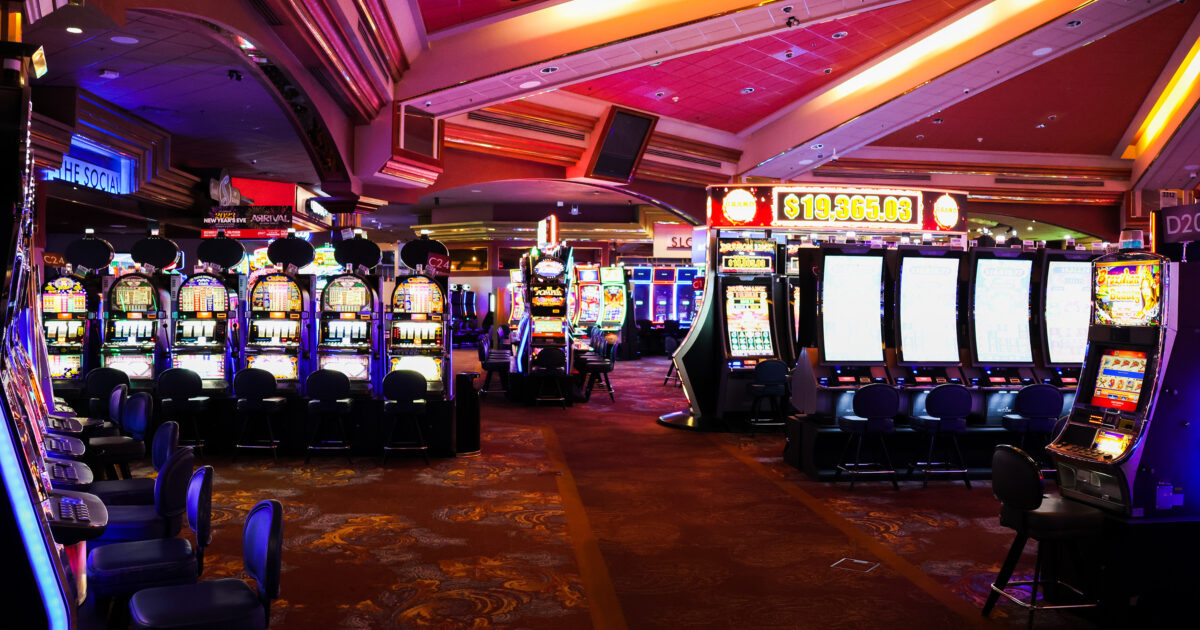
The realm of leisure has seen numerous transformations over the decades, but not many have captured the creativity and thrill of players like casino games. Emerging in from the vibrant halls of Las Vegas and Atlantic City, New Jersey, these games have moved beyond borders and societies, becoming a global phenomenon. From the bright lights of a mega-resort to the convenience of online sites, the allure of gambling games is undeniable, drawing millions into a realm of luck and strategy.
As more countries accept gambling in various forms, the influence of U.S. gambling is clear. They have not only influenced local gaming industries but have also inspired countless adaptations and innovations globally. Classic games such as poker and blackjack, along with modern variations, have created a shared language of entertainment that connects across diverse populations. The combination of risk, reward, and social engagement found in these games fosters a distinct sense of community, further cementing their place in the global entertainment sphere.
Historical Summary of American Gambling Games
U.S. casino games have a rich and colorful past that mirrors the societal evolution of the United States. The origins of these activities can be linked back to various Europe’s gaming practices introduced over by colonists. Activities like the poker game, the blackjack game, and the roulette game worked their way into the fabric of U.S. culture in the 19th century, achieving popularity in saloons and riverboats. These places provided the ideal setting for community engagement and rivalry, laying a solid basis for casino gambling as we know it today.
As the country expanded westward, gambling evolved alongside it. The Gold Rush era in the mid1800s witnessed the rise of gambling communities such as Deadwood, South Dakota and Tombstone, Arizona, where gambling activities were played with high stakes, often punctuated by an air of lawlessness. This time paved the way for the formalization of casino games in the early 20th century, notably with the creation of Las Vegas as a gambling hotspot. The building of lavish casinos transformed the gambling environment, creating an environment where games could flourish and draw visitors from around the world.
In the past few decades, the legalization of casino gaming in various states has additionally expanded the range of games available. U.S. casinos now feature a combination of traditional games and new offerings that serve to contemporary players. This expansion has allowed for a unique blend of traditional and new, enabling the ongoing evolution of casino culture in the U.S.. The international impact of these games has also contributed to their inclusion into international gaming markets, showcasing the lasting influence of American casino games across the globe.
Global Popularity and Influence
The rise of American casino games has marked a significant change in the international gambling landscape. depo288 With their appeal crossing borders, these games have enthralled players around the globe. From Texas Hold’em tournaments to slot machines, American styles have established a home in many global casinos. This transference of culture emphasizes how adaptable and compelling these titles are, adapting to local tastes while maintaining their classic American charm.
Additionally, the impact of these titles goes beyond traditional gambling establishments. Online platforms have played a pivotal role in promoting U.S. casino titles, making them accessible to players globally. The ease of online gambling has introduced millions to experiences that were once limited to brick-and-mortar casinos. Players can now enjoy their beloved titles from anywhere, sparking a fresh wave of excitement and growing the player base significantly.
This global embrace is also reflected in the incorporation of U.S. casino games into local traditions. Countries that have embraced these titles often organize their own adaptations and tournaments, mixing local traditions with U.S. gaming traditions. This blend not only enriches the gambling journey for participants, but it also underscores the strong influence that American gambling titles have on both entertainment and community engagement across various societies.
Cultural Adjustments and Innovations
Gambling games have undergone significant transformations as they spread across various societies. Each region has absorbed features of U.S. gambling while infusing its own customs and practices. For instance, the rise of online casino sites has allowed for the inclusion of local flavor into classic titles like poker and blackjack. Players now enjoy variations that include regional betting styles and distinct rules, making the games more relatable and welcoming for different crowds.
In many countries, the appeal of gambling games has led to the development of localized versions that reflect cultural aspects and narratives. This adaptability has opened doors for innovative game development that connects with players on a individual basis. Gaming machines, for example, now showcase visuals and sounds that celebrate local heritage, folklore, and popular culture, which in consequently enhances the gaming experience and fosters a feeling of belonging among players.
Furthermore, the worldwide influence of U.S. casino games has led to new game styles and blended styles. Some establishments have merged traditional betting with amusement elements, such as live shows or interactive technology, leading to a more engaging experience. These innovations not only attract a broader audience but also guarantee that the essence of gaming continues to evolve, bridging gaps between different communities while maintaining the thrill that gambling games are known for.
